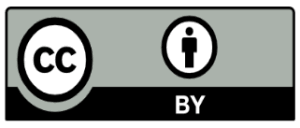IMPRISONMENT AS A FORM OF PUNISHMENT: A CASE STUDY OF MALDIVES
Abstract
Today punishment of imprisonment is seen to be given a less prominent significance in terms of punishing offenders as a means of rehabilitation and reducing recidivism rates throughout the world. However, it is found that the Maldivian courts have adopted a pattern of punishing offenders through imprisonment as a general form of punishment for almost all types of crimes despite considering the severity and mitigating factors of a given case. This pattern of punishing offenders through imprisonment alone is practiced by an authority of discretion given to the judges in the Penal Code of Maldives even though the same Penal Code allows for the application of other forms of alternative punishments. Whilst some may argue on the effectiveness of imprisonment as a general form of punishment, our argument lies in resorting away from a punishment that yields less possible avenues for rehabilitation and reintegration of offenders back into the society and that the preference should be given to alternative forms of punishments based on the circumstances surrounding any individual case.
References
Antilla. (1975, February). Probation and Parole- Social Control or Social Service? International Journal of Criminology and Penology, 3(1), 79-84.
Braman, D. (2002). Families and Incarceration. Yale University.
Ghassemi, G. (2009). Criminal Punishment in Islamic Societies: Empirical Study of Attidudes to Criminal Sentencing in Iran. Springer Science + Business Media B. V.
Larson, D. (2013). Why Scandanavian Prisons are Superior. Retrieved July 20, 2017, from The Atlantic Monthly: Doran Larson, Why Scandinavian Prisons Are Superior 2013, Published by The Atlantic Monthly Group.http://www.theatlantic.com/international/archive/2013/09/why-scandinavian-prisons-aresuperior/279949/
Maldives Police Service. (2015). Crime Statistics. Retrieved December 2017, from https://www.police.gov.mv#casestat
Mohamed Hassan. (2015). Maldives Creates Historical Penal Code. Retrieved January 5, 2017, from Maldives Independent: http://maldivesindependent.com/politics/maldives-celebrates-historic-penal-code-101013
Schnittker, J., & John, A. (2007). Enduring Stigma: The Long-Term Effects of Incarceration on Health. Journal of Health and Social Behavior, 48(2), 115-130.
Statistics Maldives. (2017). Government Statistical Yearbook . Retrieved September 30, 2017, from http://statisticsmaldives.gov.mv/yearbook/2017/wp-content/uploads/sites/4/2017/07/8.22.pdf
Ugelvik, T., & Dullum, J. (2012). Penal Exeptionalism: Nordic Prison Policy and Practice. Routledge.
United States Department of State. (2014). Country Reports on Human Rights Practices for 2014. Retrieved January 5, 2017, from Bureau of Democracy, Human Rights and Labor: http://photos.state.gov/libraries/maldives/231771/PDFs/hr_report_2014_Maldives.pdf
UNODC. (2005, September). South Asia Regional Profile. Retrieved January 5, 2017, from UNODC: http://www.unodc.org/pdf/india/publications/south_Asia_Regional_Profile_Sept_2005/11_maldives.pdf
World Prison Brief. (n.d.). Maldives. Retrieved September 30, 2017, from http://www.prisonstudies.org/country/maldives
Published
How to Cite
Issue
Section
License
Copyrights for articles published in Journal of Asian and African Social Science and Humanities are retained by the authors, with first publication rights granted to the journal. The journal/publisher is not responsible for subsequent uses of the work. It is the author's responsibility to bring an infringement action if so desired by the author.
Articles published in Journal of Asian and African Social Science and Humanities are published under the Creative Commons Attribution (CC-BY) license, which permits others to distribute, remix, tweak, and build upon your work as long as they credit you for the original creation.
Â














